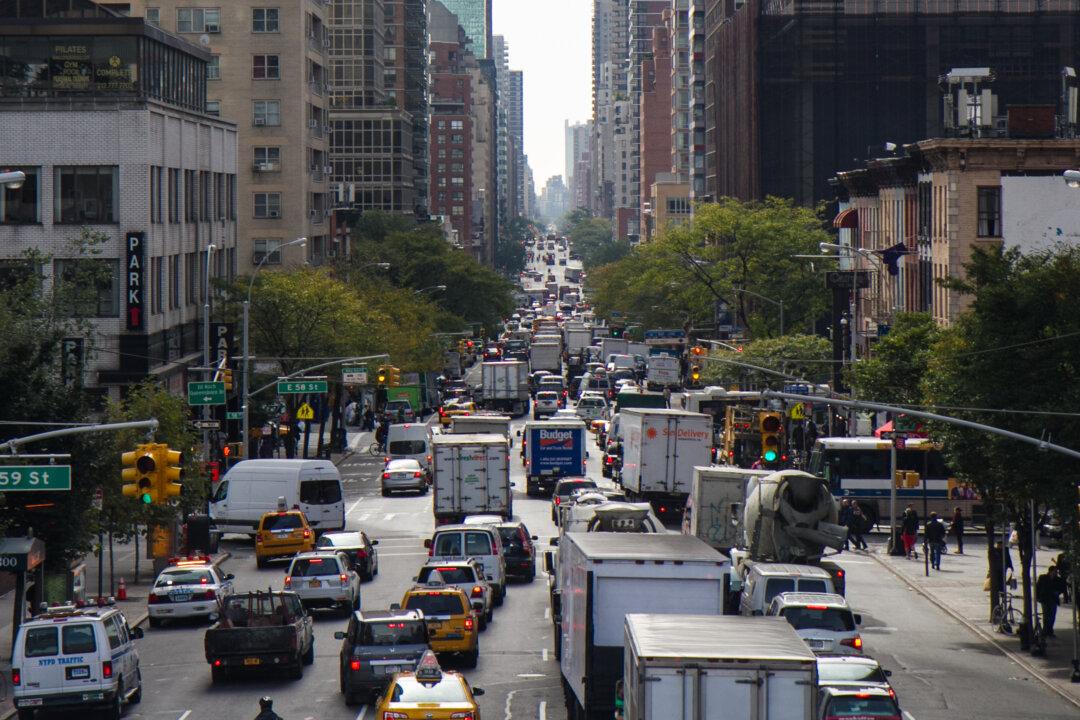The state of New Jersey filed a lawsuit in a federal court on Friday against New York’s Central Business District Tolling Program, commonly known as the “congestion pricing scheme.”
In a complaint (pdf) filed in the U.S. District Court of New Jersey, the state alleges that the U.S. Department of Transportation (USDOT) and the Federal Highway Administration’s (FHWA) approval, which bypassed a comprehensive environmental impact statement (EIS), violates federal environmental laws and ignores the scheme’s significant impact on neighboring states.





